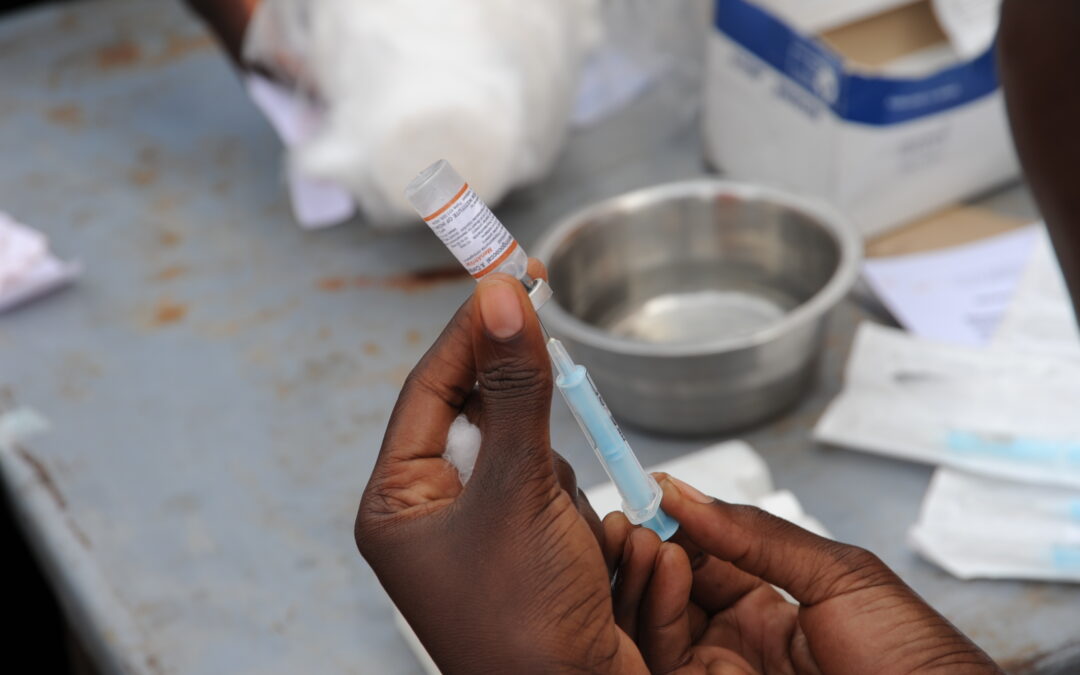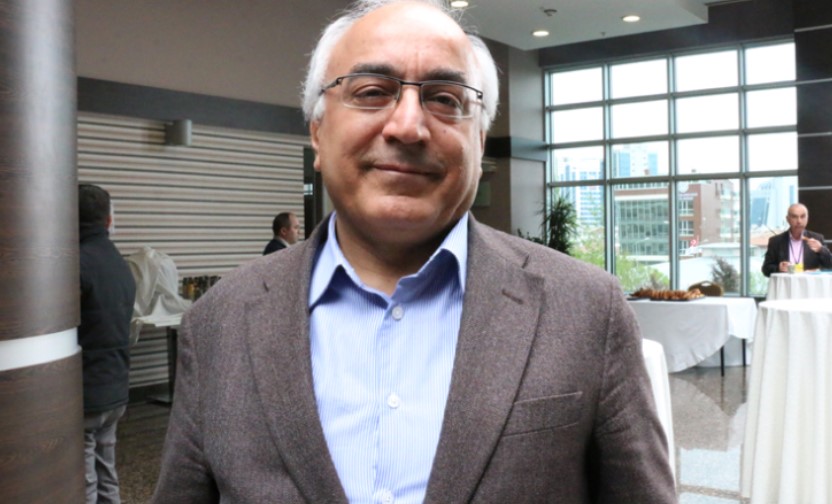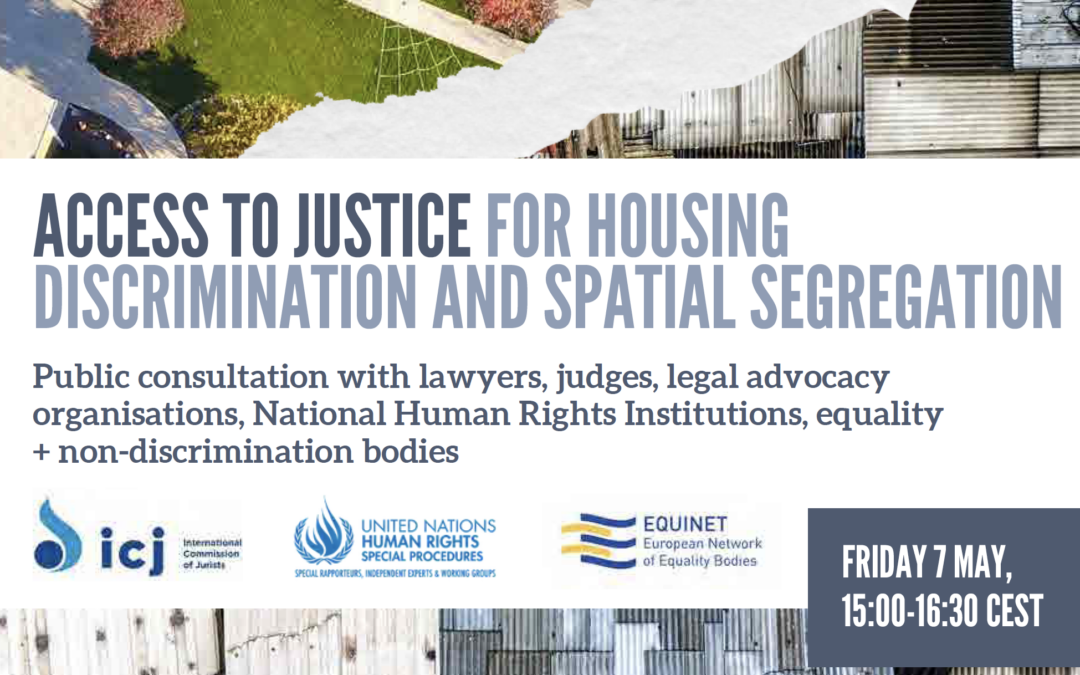
Apr 9, 2021 | Advocacy, News
The ICJ, together with the Office of the United Nations High Commissioner for Human Rights (OHCHR) and the National Commission on Violence Against Women (Komnas Perempuan) in Indonesia, held a webinar on 6 April to consider ways to combat discrimination and violence faced by Indonesian women.
In particular, participants identified advocacy strategies towards strengthening Indonesia’s compliance with its international legal obligations under the UN Convention on the Elimination of all forms of Discrimination against Women (CEDAW).
The webinar was broadcast live on Facebook and showcased the Bahasa Indonesia version of CEDAW video and attended by more than 50 women human rights defenders. The participants discussed the adequacy of measures taken by the Indonesian government to implement recommendations issued by the Committee on the Elimination of Discrimination against Women (CEDAW Committee) after it had reviewed Indonesia’s report in 2012. These recommendations included a call to repeal discriminatory by-laws adopted at the provincial level that restrict women’s rights in Aceh province and elsewhere; the adoption of measures taken to ensure that the draft or proposed amendments to the Criminal Code Bill and other bills do not contain provisions that discriminate against women; the need to address gender based violence and sexual violence against women including indigenous women; and the protection of women human rights defenders.
Devi Anggraini, Chairperson of Association of Indigenous Women of the Archipelago (Perempuan Aman) said although Indonesia had ratified CEDAW through Law No. 7 year 1984 to protect the individual rights of Indonesian women, policies had yet to effectively protect the collective rights of indigenous women. She shared her concerns regarding discrimination against Indigenous women in the context of large-scale development projects, exploitation of natural resources, deforestation, and expansion of agriculture, as well as their access to land and resources.
“The Indonesian government does not seek ‘free, prior, and informed consent’ by the affected indigenous people, especially indigenous women and this has caused 87.8% of indigenous women to lose control of their traditional lands,” said Devi.
Dian Novita, Coordinator of Policy Advocacy Division from Legal aid for Women and Children (LBH APIK Jakarta) raised concern about discriminatory draft laws and provincial laws.
“LBH APIK assists many cases of women who are victims of gender-based violence in which their videos containing private sexual conducts were distributed online. However, they were criminalized under the pornography law and Electronic Information’s and Transactions (EIT) Law. We are currently trying to pursue judicial review of the ETI Law from women’s perspective”, said Dian.
Andy Yentriyani, Head of Komnas Perempuan said that despite existing challenges and new obstacles, there had been some progress in responding to the Recommendations of the CEDAW Committee from the previous cycle, such as the enactment of Supreme Court Regulation no.3 year 2017 on guidance for judges in adjudicating cases involving women and similar gender sensitive regulation released by the Attorney General’s Office and the Police. “It is now our duty to monitor that these policies and training are effectively implemented. For example, we gained extraordinary support from the civil society during the campaign urging the Government to adopt the Sexual Violence Bill and this expanded participatory space for constructive dialogue for public to understand more about State responsibilities to protect and promote the fundamental rights of women.”
Watch
Contact
Ruth Panjaitan, Legal Adviser for Indonesia, e: ruthstephani.panjaitan(a)icj.org

Apr 7, 2021 | News
Victims of gross human rights violations must be provided with effective reparations and guarantees of non-recurrence by Tunisia’s Specialized Criminal Chambers (SCC), judges and prosecutors asserted during a workshop held by the ICJ and the Association of Tunisian Magistrates (AMT) on 3 and 4 April.
The workshop highlighted the need for the SCC to adopt restitution, compensation, rehabilitation and satisfaction measures to achieve to the fullest extent possible reparation for material and moral damage suffered by victims of gross human rights violations in Tunisia.
Participants further emphasized that SCC decisions should include recommendations on guarantees of non-recurrence, including on legal and institutional reforms.
The workshop was attended by more than 25 Tunisian judges and prosecutors attached to the 13 Specialized Criminal Chambers. Discussions involved also international experts and ICJ representatives.
“It is important that the SCC, consistent with international standards, adopt a comprehensive notion of victims and persons entitled to reparation,” said Philippe Texier, ICJ Commissioner.
“In this respect, reparative measures should focus not only on direct victims, but also indirect victims, including the immediate family or dependants of the direct victim and persons who have suffered harm in intervening to assist victims,” he added.
Federico Andreu-Guzmán, international expert, noted the non-derogable nature of the right to reparation under international law and that SCC should seek to ensure that all their decisions comply with this right.
“SCC decisions should include wide-reaching recommendations in order to guarantee that the violations will not be repeated,” said Said Benarbia, Director of ICJ’s Middle East and North Africa Programme.
The workshop also offered the opportunity to participants to discuss a set of recommendations targeting the High Judicial Council and its role in supporting the SCC.
The recommendations, which were developed by a group of SCC judges and prosecutors following the ICJ’s roundtable of 13-14 March, aim to find joint approaches to address ongoing procedural obstacles before the SCC and will be subject of future meetings and roundtable discussions organized by the ICJ and the AMT.
Contact
Valentina Cadelo, Legal Adviser, ICJ Middle East and North Africa Programme, e: valentina.cadelo(a)icj.org
Asser Khattab, Research and Communications’ Officer, ICJ Middle East and North Africa Programme, e: asser.khattab(a)icj.org

Mar 23, 2021 | Advocacy, News, Op-eds
[TOC]By Tim Fish Hodgson, Legal Adviser on Economic, Social and Cultural Rights at the International Commission of Jurists and Rossella De Falco, Programme Officer on the Right to Health at Global Initiative on Economic, Social and Cultural Rights.
Historically pandemics have often catalyzed significant social change. As historian of epidemics Frank Snowden puts it: “epidemics are a category of disease that seem to hold up the mirror to human beings as to who we really are”. At the moment gazing in that mirror remains a regrettably unpleasant experience.
United Nations human rights Treaty Body Mechanisms and Special Procedures, the World Health Organization (WHO), UNAIDS and numerous local, regional and international human rights organizations have produced reams of statements, resolutions and reports bemoaning the human right impacts of COVID-19 and almost every single aspect of the lives of almost all people around the world. The latest being the UN Human Rights Council Resolution adopted today by consensus on “Ensuring equitable, affordable, timely and universal access for all countries to vaccines in response to the coronavirus disease (COVID-19) pandemic”.
Key amongst the human rights law and standards underpinning these analyses is the protection of the right to the highest attainable standard of health, which, certainly for the 171 States Parties to the International Covenant on Economic, Social and Cultural Rights places an obligation on States to take all necessary measures to ensure “the prevention, treatment and control of epidemic, endemic, occupational and other diseases”, and, in the context of access to medicines the right to “enjoy the benefits of scientific progress and its applications”.
Despite these legal obligations, in late February, the UN Secretary General António Guterres felt compelled to highlight the rise of a “pandemic of human rights abuses in the wake of COVID-19”, including, but extending beyond violations of the right to health. The impact of COVID-19 on human rights has, and continues to be, sufficiently ubiquitous that an Indonesian transwoman activist Mama Yuli perhaps captured it best when telling a journalist that she and others in her position were “living like people who die slowly”.
Vaccines for the few, but what about the many?
Disappointingly, however, instead of a symbol of hope of a light at the end of the Coronavirus tunnel, the COVID-19 vaccine has fast become yet another pronounced illustration of the parallel pandemic of human rights abuses described by Guterres. The disastrous state of COVID-19 vaccine production and distribution throughout the world – and even within particular countries where vaccines are available – is now often described by many activists, including significantly the People’s Vaccine campaign, as “vaccine nationalism” and profiteering which has produced a “vaccine apartheid”.
What this means, in human rights language, is that States have often arranged their own affairs in a way that is detrimental to access to vaccines in other countries in spite of their extraterritorial legal obligations to, at very least, avoid their actions that would foreseeably result in the impairment of the human rights of people outside their own territories.
It is worth emphasizing that it has still been only some four months since the first mass vaccination campaigns began in December 2020. At the time of writing, approximately 450 million people had been vaccinated worldwide, while many African nations, for example, had yet to administer a single dose. While in North America 23 COVID-19 vaccine doses have been administered per 100 hundred people, with the number standing at 13/100 in Europe, the ratio decreases dramatically in the Global South with 6.4/100 in South America, 3.8/100 in Asia, 0.7/100 in Oceania and a mere 0.6/100 in Africa.
Vaccines, State Obligations and Corporate Responsibilities
The inadequate and inequitable distribution of vaccines has a variety of causes.
First, is the generally dysfunctional nature of the global health system due to what the UN Committee on Economic, Social and Cultural Rights described in its first statement on COVID-19 as early as April 2020 as “decades of underinvestment in public health services and other social programmes”. The incredible inequities caused by privatization of healthcare services, facilities and goods in the absence of sufficient regulation is well-documented, both in the Global North and the Global South.
Second, are the obstacles to vaccine access created and maintained by States, singly but collectively in the form of intellectual property rights regimes. This is not for a lack of guidance or legal mechanisms to ensure the flexible application of intellectual property protections in favour of the protection of public health and the realization of the right to health. The TRIPS agreement is an international legal agreement concluded by members of the World Trade Organization which sets minimum standards for intellectual property rights protections.
States are specifically permitted to interpret intellectual property rights protections “in the light of the object and purpose of” TRIPS and States therefore retain “the right to grant compulsory licences and the freedom to determine the grounds upon which such licences are granted” in the specific context of public health emergencies. Nor is it the first time that epidemics have necessitated the engagement of flexible arrangements to ensure expeditious, universal, affordable and adequate access to life saving medications and vaccines.
This is why the majority of States and an overwhelming majority of civil society actors have supported South Africa and India’s request that the WTO issue a “waiver” of the application of intellectual property rights for COVID-19 “diagnostics, therapeutics and vaccines”. This request has also been formally supported by a number of independent experts of the UN Human Rights Council of UN Special Procedures, and recently received the emphatic endorsement of the UN Committee on Economic, Social and Cultural Rights. There is already precedent for such TRIPS waivers, with the WTO having already applied a waiver until 2033, for example, for least-developed countries (LDCs), which are exempted from applying intellectual property rules on pharmaceutical products and clinical data.
Disappointingly, however, the ink had barely dried on the issuing of the CESCR’s statement, when, plainly disregarding all of these recommendations, the waiver was blocked by a coalition of wealthier nations, many of whom already have substantial and advanced vaccine access. Importantly, the CESCR’s recommendations were not just made on vague policy grounds, but as the best way to fulfill States’ clear legal obligation in ICESCR that, “production and distribution of vaccines must be organized and supported by international cooperation and assistance”.
The recently adopted Resolution of the UN Human Rights Council, led by Ecuador and States of the Non-Aligned Movement and adopted on 23 March 2021 provides some hope of the alteration of this existing collision course with disaster. The resolution, which calls for “equitable, affordable, timely, and universal access by all countries”, reaffirms vaccine access as a protected human right and openly acknowledges “unequal allocation and distribution among countries”.
The resolution proceeds to call on all States, individually and collectively, to “remove unjustified obstacles restricting exports of COVID-19 vaccines” and to “facilitate the trade, acquisition, access and distribution of COVID-19 vaccines” for all.
However, despite the protestations of civil society organizations involved in deliberations about the resolution, the resolution only restates the right for States to utilize TRIPS flexibilities, as opposed to endorsing such measures as a best practice for realizing State human rights obligations. This tepid approach (which follows principles of international trade while, ironically given the resolution emanates from the Human Rights Council, ignoring human rights standards) to perhaps the pressing issue relating to vaccine access is inconsistent with the Resolution’s otherwise firm grounding of vaccine access in human rights. It therefore remarkably even falls short of insisting that States comply with their own long-established international human rights obligations.
The resolution also inexplicably fails to address corporate responsibilities, including those of pharmaceutical companies, to respect the right to health in terms of the UN Guiding Principles on Business and Human Rights, and States’ corresponding duty to protect the right to health through adopting adequate regulatory measures.
Third, and connected to the above, is the general failure of States to fully and adequately centre their human rights obligations in the broader context of COVID-19 responses worldwide. The subtle but important phrasing of the exercise of TRIPS flexibilities as a “right of States” rather than as one of the optimal ways of fulfilling an obligation, exposes the degree to which the attitudes by State policy makers and legal advisors towards and understanding of human rights are out of sync with the obligations that they have willingly assumed by becoming party to treaties like the ICESCR.
A Critical Moment: it does not have to be this way
As Snowden’s insightful work predicted, the COVID-19 pandemic represents a critical moment in human history. States, collectively and individually, are presented with a unique opportunity to set a precedent and begin to seriously address the root causes of inequality and poverty which are prevalent across the world.
Making the right decision and taking a moral stand on the importance of access to COVID-19 vaccines is both practically and symbolically important if these efforts are to succeed. Vaccines must be accepted and acknowledged as global public health goods and human rights. Private companies too should not stand in the way of equitable and non-discriminatory vaccine access for all people.
For this to happen, bold leadership is required from international human rights institutions such as the UN Human Rights Council, the UN General Assembly and the WTO. Unfortunately, at present, not enough has been done and politicking and private interest continue to trump principle and public good. Until this changes, many people around the world will continue to exist, “living like people who are dying slowly”. It does not have to be this way.

Mar 19, 2021 | News
The ICJ called today on the Turkish authorities to immediately release human rights defender and lawyer Öztürk Türkdoğan, who was arrested this morning after an unlawful search of his home. The charges against him, if any, are unkown and he is currently being held without access to his lawyer.
Öztürk Türkdoğan is the chair of the Human Rights Association and a lawyer and member of the Ankara Bar Association.
“The arrest and search of Öztürk Türkdoğan’s continues a systematic pattern of misuse of the criminal law to harass and persecute human rights defenders and lawyers in Turkey in recent years,” said Roisin Pillay, ICJ’s Europe and Central Asia Programme Director. “Öztürk Türkdoğan must be released immediately. If he remains in detention then he must be ensured immediate and confidential access to a lawyer, and be informed of the nature of any charges against him and brought promptly before a court.”
The arrest occurred during a search of Öztürk Türkdoğan’s home without the presence of a lawyer, which is in direct contravention of Turkish criminal procedural law.
While no information has been made available on the charges against Öztürk Türkdoğan, he is currently being detained without access to a lawyer for 24 hours, which indicates that the charges are likely related to terrorism or to offences against the State. These offences, contrary to obligations under international human rights law, are vaguely and broadly defined and have been long used and abused by prosecutors in Turkey to suppress human rights defenders, lawyers and political opponents.
Under international human rights law, anyone arrested has a right to prompt and confidential access to a lawyer, and to information on the charges against them. Arrests and searches of homes must not be arbitrary and must be carried out in compliance with international standards and national laws and procedures.
“Hundreds of lawyers, judges and prosecutors have been improperly arrested, harassed and detained in the past few years by Turkish authorities ” said Roisin Pillay. “Using the criminal justice system in this way is contrary to the most fundamental principles of the rule of law.”
Background
Systematic violations of human rights in investigation and prosecution of counter-terrorism offences in Turkey have also been documented by the UN Special Rapporteur on the promotion and protection of human rights while countering terrorism, the UN Special Rapporteur on the situation of human rights defenders, the UN Special Rapporteur on the independence of judges and lawyers, theWorking Group on Arbitrary Detention, the Special Rapporteur on the rights to freedom of peaceful assembly and of association and the Special Rapporteur on the promotion and protection of the right to freedom of opinion and expression, and the Commissioner for Human Rights of the Council of Europe.
The ICJ has extensively documented these violations:









